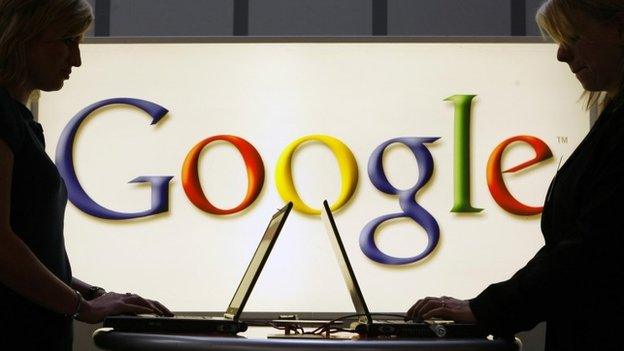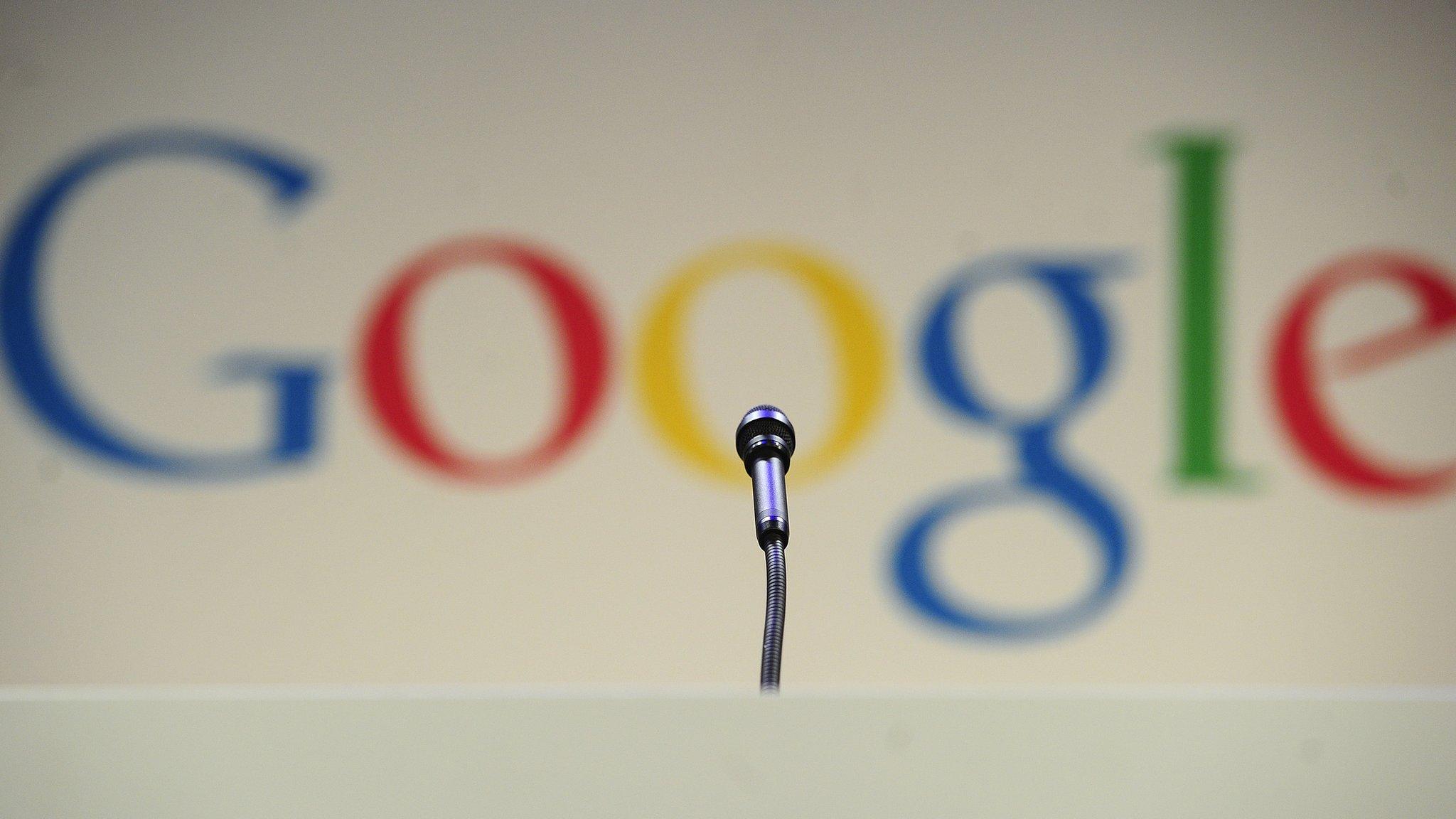NewsCorp: Google is a 'platform for piracy'
- Published

Google's management is accused of losing their "shining vision"
The chief executive of NewsCorp has written to the European Commission calling for a tougher approach to search giant Google.
In the strongly worded letter, Robert Thomson says "the shining vision of Google's founders has been replaced by a cynical management".
It calls Google a "platform for piracy" whose power "increases with each passing day".
Google says it tackles piracy rigorously.
Google is in a long-running dispute with the Commission over competition issues. The EU recently said it was not yet ready to settle the matter.
A spokesperson for the search giant initially gave a light-hearted response to Mr Thomson's letter, saying: "Phew! What a scorcher! Murdoch accuses Google of eating his hamster!"
The response refers to NewsCorp executive chairman Rupert Murdoch. It is an echo of famous headlines from the Sun newspaper, which is owned by NewsCorp.
No resolution
Mr Thomson's letter, addressed to Competition Commissioner Joaquin Almunia, includes a warning that a failure to challenge Google's dominance "will lead to a less informed, more vexatious level of dialogue in our society.
"The intemperate trends we are already seeing in much of Europe will proliferate," it states.
Google has offered concessions over the way it does business, following complaints that it is stifling competition in Europe, where it commands 90% of search business.
But competitors, including Microsoft, German publisher, Axel Springer, and British price-comparison site Foundem, argue that what has been offered is insufficient.
Last week Mr Almunia, indicated he did not believe the dispute with Google would be resolved before he left office at the end of October.
'News sites undermined'
"We thought it was a crucial moment to weigh in," a NewsCorp source told the BBC.
"We are pleased with the new direction that the Commission will be taking, that there is a more thoughtful approach to Google's practices."
NewsCorp's letter says its newspapers, The Times, the Sun and the Wall Street Journal Europe and the book publisher, HarperCollins are unfairly disadvantaged by Google's scale.
"The uniqueness of news sites has been undermined by aggregation of content which transfers the front page to the Google home page.
"Readers have been socialised into accepting this egregious aggregation as the norm."
He also suggests Google is taking unfair advantage of its ability to sell advertising targeting specific audiences at discounted rates, undermining specialist publishers' ability to generate advertising revenue.
"For example access to 75% of the Wall Street Journal demographic at 25% of the price, thus undermining the business model of the content creator," the letter says.
'Better for users'
Google points to counter-arguments made by its chief executive, Eric Schmidt.
Mr Schmidt has argued that newspapers get most of their online traffic directly and that Google is not "the gateway to the internet".
He laid out his arguments in a recent letter to the Financial Times newspaper, saying it was not true that Google promoted its own products at the expense of competitors but aimed to provide users with the answers to their queries.
Mr Schmidt added: "The allegations made by publishers have been extensively investigated by regulators in Europe and the US over more than seven years.
"To date no regulator has objected to Google giving people direct answers to their questions for the simple reason that it is better for users."
- Published9 September 2014

- Published8 September 2014

- Published17 April 2014
